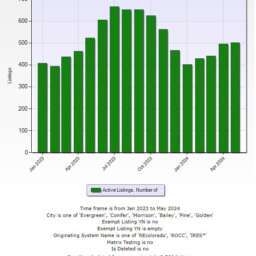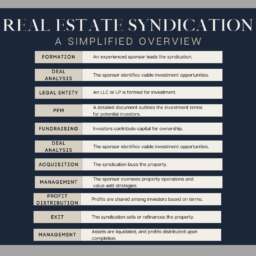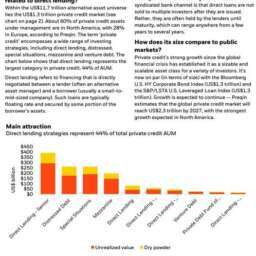NAR Commission Lawsuit
The recent lawsuit against the National Association of Realtors (NAR) and several leading U.S. real estate brokerages has sent shockwaves through the industry, with a Kansas City jury awarding $1.8 billion in damages for alleged antitrust violations. This case, along with similar actions, could significantly impact the real estate commission structure and the industry at large. Here are ten key points on how this lawsuit could affect the real estate landscape:
- Antitrust Allegations Against NAR: The lawsuit centers on allegations that NAR and major brokerages colluded to artificially inflate agent commissions through rules that require sellers to pay the buyer’s agent commission, potentially violating federal antitrust laws.
- Impact on Commission Structures: If the lawsuit’s outcomes lead to changes in how commissions are structured, it could lower the costs for sellers but also disrupt the traditional revenue models for real estate agents and brokerages.
- Increased Legal and Regulatory Scrutiny: The suit and its aftermath may result in increased legal and regulatory scrutiny of the real estate industry’s practices, potentially leading to more lawsuits or regulatory changes.
- Potential for Market Disruption: The case could lead to significant market disruption, as adjustments to commission structures could change how agents and brokerages compete and operate.
- Changes in Consumer Behavior: Consumers might become more aware of the commission structures and seek out alternative or lower-cost services for buying and selling properties, potentially accelerating the adoption of technology-driven real estate services.
- Innovation and Competition: The lawsuit could spur innovation and competition within the industry, as new and existing companies look to capitalize on changes to traditional commission models.
- Impact on Real Estate Agents: The ruling may have a significant impact on real estate agents, particularly those who rely heavily on commissions from buyer-side transactions. It could result in a shift in how agents are compensated, potentially leading to a decrease in the number of agents.
- Shift Towards Transparency: There could be a push towards greater transparency in how commissions are determined and paid, benefiting consumers by providing them with more information to make informed decisions.
- Rise in Alternative Business Models: The lawsuit might accelerate the rise of alternative business models in real estate, such as flat-fee services or online platforms that offer more flexibility in commission and service structures.
- Long-Term Industry Transformation: Ultimately, the lawsuit could be a catalyst for long-term transformation in the real estate industry, with implications for how properties are bought and sold, how agents are compensated, and how consumers engage with the real estate market.
Understanding the Shift
Historically, real estate commissions have been a fixed expectation, a standard practice in the buying and selling process. However, a series of high-profile legal battles, culminating in a Missouri federal jury’s decision, exposes a deeper narrative—one where commission structures have been artificially maintained at high rates through alleged antitrust violations.
At the core of these legal challenges is the contention that the NAR’s policies, particularly the Buyer Broker Commission Rule, restrict competitive pricing, imposing undue costs on sellers and ultimately affecting the cost dynamics of the entire market. This ruling, while financially significant, also propels a broader reevaluation of how commissions are determined and their impact on the market’s accessibility and fairness.
The Ripple Effect
The implications of these legal proceedings extend far beyond courtroom walls or financial penalties. They beckon a potential overhaul in commission structuring, opening doors to a model where rates can be negotiable and transparent. Such an evolution could empower buyers with reduced costs and heightened clarity in transactions, fostering a more competitive landscape that benefits all market participants.
Standing Firm
In response to these groundbreaking developments, the NAR and the brokerages involved have defended their practices, underscoring their commitment to fostering a market that champions both efficiency and equity. They maintain that their models offer irreplaceable value to the transaction process, ensuring that both buyers and sellers benefit from a well-regulated, competitive market conducive to homeownership.
Looking Ahead
This $1.8 billion verdict does not just represent a financial milestone; it signifies a turning point in real estate tradition, encouraging us to question and redefine standard practices for the betterment of the industry. With the potential for more transparent and negotiable commission rates on the horizon, we stand at the precipice of a more inclusive, competitive market that holds the promise of benefits for consumers across the board.
NAR Lawsuit Impact
The unfolding developments in the structure of real estate commissions invite us into a period of introspection and potential transformation. As the industry continues to evolve, the focus remains steadfastly on fostering an environment that is not only transparent and fair but also one that continues to uphold the values of efficiency, community, and unmatched service. With a forward-thinking approach, we are committed to navigating these changes, ensuring the best possible outcomes for buyers, sellers, and the industry at large.
The real estate industry has been significantly impacted by a series of high-profile legal challenges surrounding real estate commissions, leading to a landmark $1.8 billion verdict against the National Association of Realtors (NAR) and several major brokerages. These developments have sparked a national conversation about the transparency and fairness of commission structures in real estate transactions, raising questions about their implications for home buyers, sellers, and the industry as a whole.
The landscape of real estate commissions is under scrutiny following recent judicial decisions that highlight concerns over alleged antitrust violations by key industry players. These legal battles spotlight the complexities of commission arrangements and their impact on the housing market.
Understanding the Legal Challenge Against Real Estate Commissions:
Recent cases, such as the Missouri federal jury ruling, have found that the NAR, alongside other brokerages, conspired to maintain high commission rates artificially. This verdict has not only led to significant financial penalties but also to a broader examination of commission practices within the industry.
Why the Lawsuit Actually Hurts Buyers:
The Case Overview:
The potential changes in real estate commission structures resulting from the NAR lawsuit and similar legal challenges could have several negative impacts on buyers, particularly those who are navigating the market for the first time or who have limited financial resources. Here are some of the key concerns:
- Increased Financial Burden: If buyers become responsible for paying their agents’ commissions directly, this could increase the upfront costs of purchasing a home. For many, this additional expense could make it harder to afford the down payment and closing costs, which are already significant barriers to homeownership.
- Reduced Access to Professional Guidance: The traditional model, where sellers pay the buyer’s agent commission, has made professional representation accessible to many buyers who might not otherwise be able to afford it. Changes to this system could reduce buyers’ access to agents, limiting their guidance and expertise in navigating the home buying process.
- Negotiation and Market Navigation Challenges: Without the representation of a buyer’s agent, buyers may find themselves at a disadvantage in negotiations and less able to navigate the complexities of the real estate market. This could result in less favorable purchase terms, higher prices, or difficulty in finding suitable properties.
- Potential for Decreased Market Transparency: Buyers’ agents play a crucial role in providing market insights and information about listings, pricing, and negotiations. A shift in commission structures could lead to a decrease in transparency, making it more difficult for buyers to make informed decisions.
- Impact on First-Time Homebuyers: First-time homebuyers, who often rely heavily on the support and guidance of a buyer’s agent, could be particularly impacted. These buyers might struggle more with understanding the buying process, financing options, and market conditions without professional assistance.
- Increased Complexity in Transactions: The home buying process could become more complex and challenging to navigate without the involvement of buyer’s agents, potentially leading to delays, increased risk of transaction failure, or legal issues.
- Potential for Higher Overall Costs: If the burden of commission fees shifts to buyers, there’s a risk that the overall cost of buying a home could increase. While commission rates might be negotiable, buyers in competitive markets may end up paying more to secure the services of top agents.
- Disparity Between Buyers and Sellers: Changes in commission structures could create a disparity between buyers and sellers in terms of negotiation power and access to professional representation, possibly skewing the market in favor of sellers.
- Barrier to Market Entry: The added financial burden of paying a commission could deter potential buyers from entering the market, particularly in high-cost areas, further exacerbating issues of affordability and access to homeownership.
- Impact on Buyer Agent Quality: With potential changes to how buyer agents are compensated, there could be a shift in the industry, with fewer agents choosing to represent buyers. This could lead to a decrease in the quality or availability of buyer representation services.
The class action lawsuit contends that the NAR’s rules and practices regarding commission structures, specifically the Buyer Broker Commission Rule, contribute to inflated commission rates. This rule has been criticized for limiting price competition and imposing unnecessary costs on home sellers, ultimately affecting the overall cost of real estate transactions.
Implications for Home Buyers and the Real Estate Market:
These legal challenges could herald changes in how commissions are structured, potentially leading to more negotiable and transparent commission rates. Such shifts may offer home buyers reduced costs and greater clarity when navigating the home buying process, contributing to a more competitive market landscape.
Response from the National Association of Realtors and Brokerages:
Despite these legal setbacks, the NAR and other implicated brokerages have defended their practices, emphasizing their role in supporting efficient and equitable real estate transactions. They argue that their models provide value to both buyers and sellers by fostering a competitive marketplace that facilitates homeownership.
Key Takeaways:
- The $1.8 billion verdict against the NAR and major brokerages marks a significant moment in the real estate industry, challenging longstanding commission practices.
- Legal challenges argue that current commission structures are anticompetitive, impacting home prices and the cost burden on sellers.
- The outcomes of these lawsuits could lead to more transparent and negotiable commission rates, potentially benefiting consumers.
FAQ Section:
Frequently Asked Questions
- What does the lawsuit allege?
- The lawsuit accuses the NAR and associated brokerages of conspiring to inflate commission rates, contravening antitrust laws, and imposing undue costs on sellers.
- How could this impact home buyers?
- A shift towards more flexible and transparent commission structures could mean lower closing costs for buyers, fostering a more competitive and accessible market.
- What has been the response from the NAR?
- Despite the ruling, the NAR maintains its stance, advocating for its commission practices as beneficial mechanisms that support a balanced and thriving marketplace.
The recent legal developments in real estate commissions signal a potentially transformative period for the industry. As these cases progress, the implications for commission structures, market practices, and the broader real estate landscape will be closely watched by professionals, consumers, and regulators alike. The outcomes could pave the way for a more transparent and competitive market, benefiting both home buyers and sellers.
David Clark
It's Nice to Share

























































































Comment, Write a Blog Post, Create Groups, Get Seen!
Comments, Opinions and Facts Go Here...👇